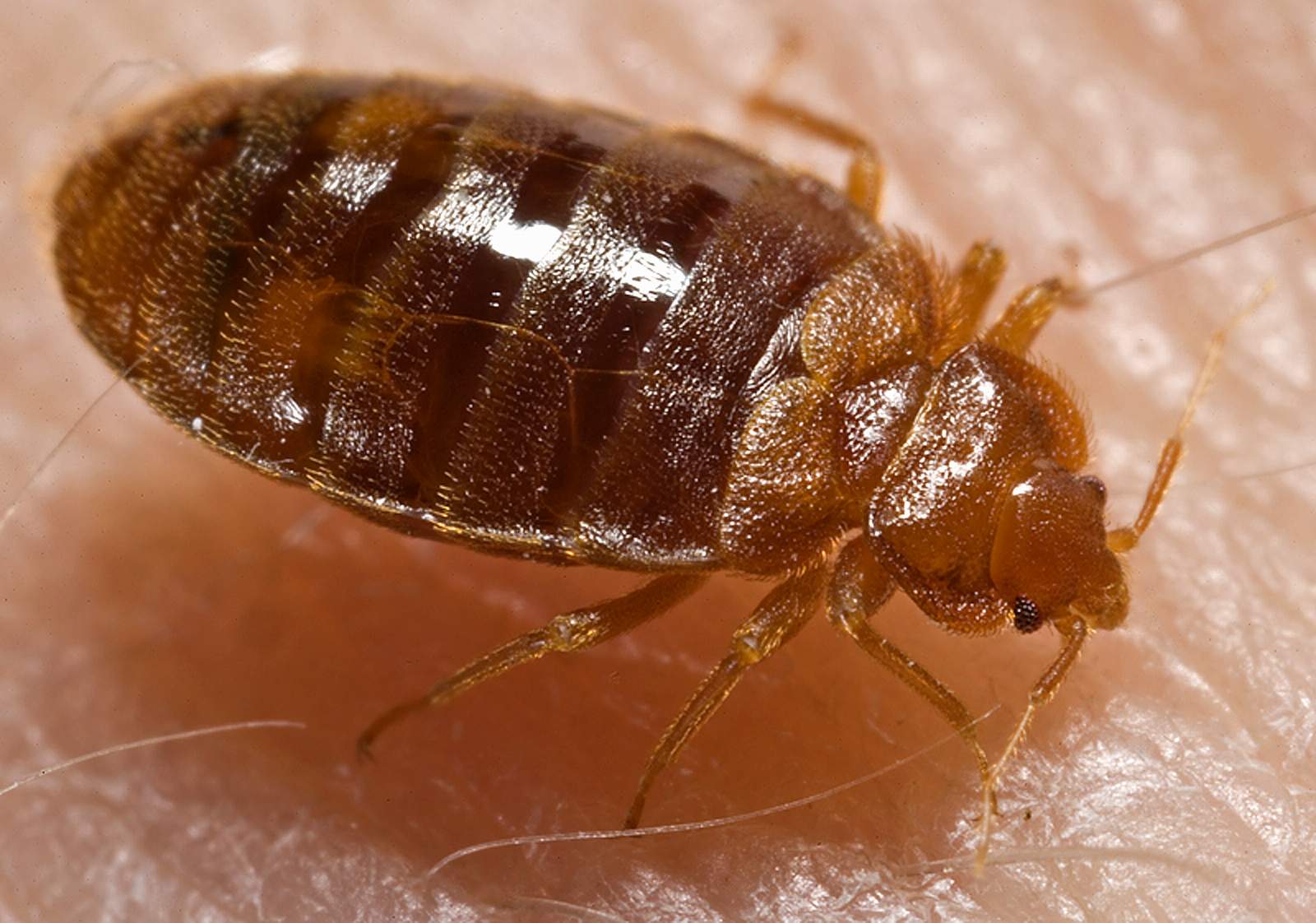16 July 2018
Good morning! Bed bugs left you Chagas Disease.
Posted by Shane Hanlon

Bed bug. Credit: Wikipedia Commons
This is part of a series of posts from our own Shane Hanlon’s disease ecology class that he’s currently teaching at the University of Pittsburgh Pymatuning Laboratory of Ecology. Students were asked to write popular science posts about (mostly) wildlife diseases. Check out all the posts here.
By Carine Rosenburg
Bugs can be scary. Bugs can be especially scary when they are in your bed. Bed bugs are a concern for many individuals worldwide not just because the bugs can be off-putting particularly in a sacred space like a bed, but also because they can be vectors for various diseases. Research has shown that bed bugs are carriers of Trypanosoma cruzi (also known as T.cruzi). T. cruzi is a protozoa that can cause Chagas disease. T.cruzi uses bed bugs, mosquitos, and kissing bugs as vectors to transmit the disease to hosts (humans and mice). Chagas disease is common in rural areas of South America but is starting to appear in the United States at a more frequent rate. Chagas disease’s symptoms start off in an acute phase where individuals experience generic illness symptoms—fatigue, malaise, fever. Then after a few weeks, an individual can shift into the chronic phase where cardiac complications and intestinal complications can occur. Individuals can experience a delay in the chronic phase or never experience the chronic phase at all. There is a lot of concern in regard to bed bugs transmitting Chagas disease due to the severe symptoms that could result from the disease.
Researchers have been testing the transmission of T.cruzi from infected bed bugs to uninfected mice, the mice acting has human hosts. The bed bugs will defecate on the mice as they are feeding. The mice then become infected with T. cruzi from the transfer of blood and the fecal deposition. The fecal deposition is a major concern especially when a mouse would have an open wound as the parasite would be directly transferred into the bloodstream. Another bug that transmits T.cruzi is the kissing bug. The kissing bug is named because of its habit of biting hosts near the eyes and mouth. Kissing bugs are becoming more prevalent in the United States as a result of climate change. The bugs tend to inhabit warmer climates such as that in the South. A research study collected 49 kissing bugs and 40% tested positive for T.cruzi.
The spread of T.cruzi is concerning for environmentalists and epidemiologists as both bed bugs and kissing bugs could experience a shift in their host range with a warming climate. Chagas disease could be a new emergent disease. Some may say that Chagas disease should not be a priority as a majority of individuals do not proceed into the chronic stage, but as temperatures changes, perhaps more will enter that phase.
–Shane M Hanlon, PhD is a Senior Specialist in AGU’s Sharing Science program and a professor at the University of Pittsburgh
Article: https://www.smithsonianmag.com/smart-news/bed-bugs-not-just-kissing-bugs-can-transmit-chagas-disease-parasite-180953350/
Secondary article: https://www.cdc.gov/parasites/chagas/gen_info/detailed.html
Image 1: https://www.memecenter.com/fun/1302921/bed-bugs
Image 2: https://www.smithsonianmag.com/smart-news/bed-bugs-not-just-kissing-bugs-can-transmit-chagas-disease-parasite-180953350/










 The Plainspoken Scientist is the science communication blog of AGU’s Sharing Science program. With this blog, we wish to showcase creative and effective science communication via multiple mediums and modes.
The Plainspoken Scientist is the science communication blog of AGU’s Sharing Science program. With this blog, we wish to showcase creative and effective science communication via multiple mediums and modes.